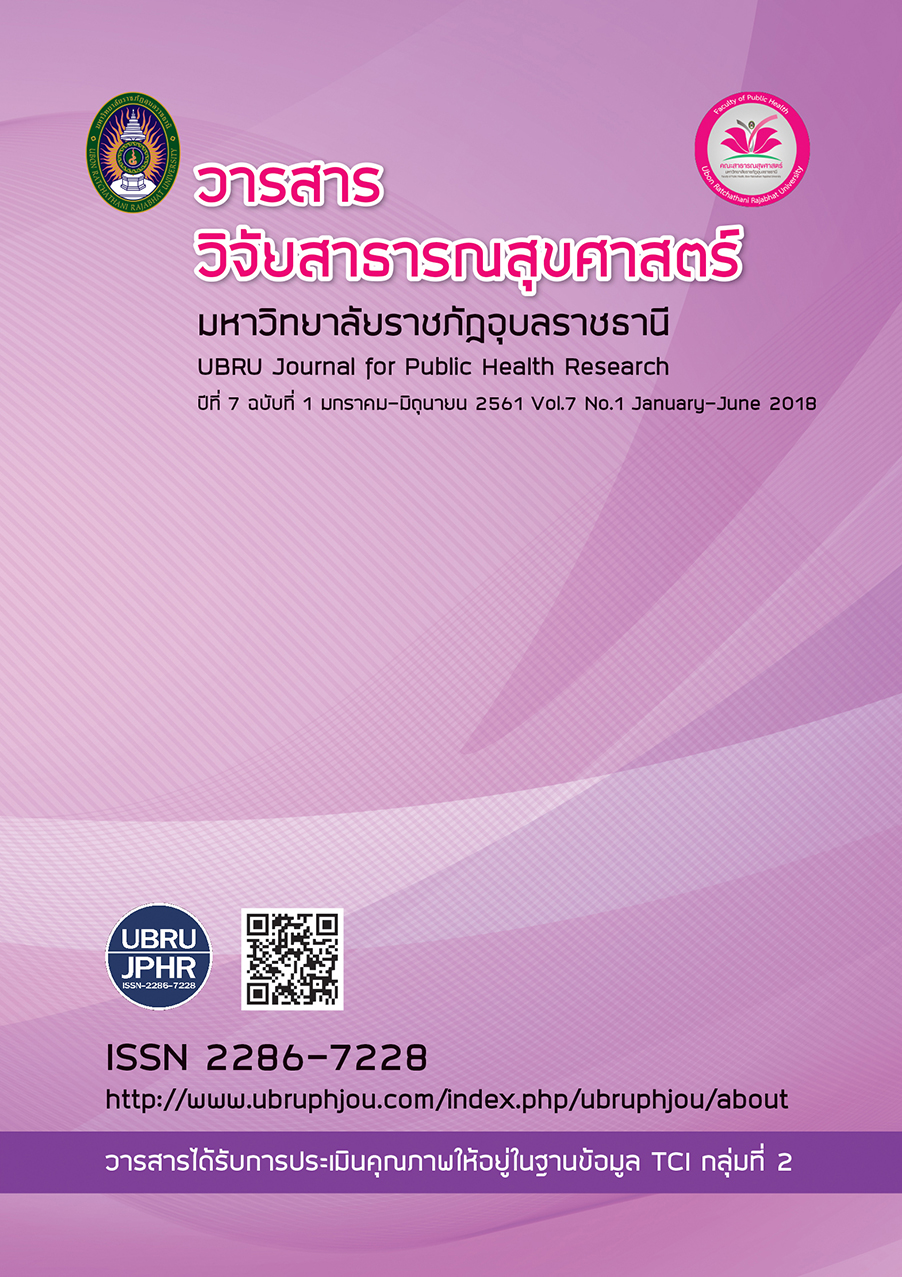Development of activities for brain function improvement in elderly
Keywords:
elderly, Activity, brain function efficiencyAbstract
This research is a quasi-experimental research. The purpose is to develop activities that can improve brain function in elderly. The study was conducted in elderly who living in Krawan Sub-district, Khunhan District, Si Sa Ket Province. The subjects were 50 elderly aged between 60-70 years and were categorized as social addict. The subjects had participated 10 weeks activities. Activities were designed in relation to brain function improvement including playing games, stimulating of thinking. The pondering of rehearsed regularly will help to recognize and be able to improve memory, slow down forgetting. Data was collected as brain fitness by comparing before and after participating in the activities. The results showed that basic brain function were statically significant increased (P<0.01) after program participation. Therefore, activities for improving brain function can be employed as a promising tool for further using in the community.
References
ณัฏฐพัชร สโรบล. (2556). เอกสารประกอบการฝึกอบรมหลักสูตร การบริหารท้องถิ่นอย่างยั่งยืนและสู่ความเป็นเลิศด้วยเทคโนโลยีและนวัตกรรม. กรุงเทพฯ: คณะสังคมสงเคราะห์ศาสตร์มหาวิทยาลัยธรรมศาสตร์.
มูลนิธิสถาบันวิจัยและพัฒนาผู้สูงอายุไทย (มส.ผส). สถานการณ์ผู้สูงอายุไทย พ.ศ.2557. (2558) [อ้างเมื่อ 18 มกราคม 2559]. จาก: http://www.thaigri.org/
Andel, R., Vigen, C., Mack, W. J., Clark, L. J., & Gatz, M. (2006). The effect of education andoccupational complexity on rate of cognitive decline in Alzheimer’s patients. Journal of the International Neuropsychological Society 12:147-152.
Gale, C., Martyn, C., & Cooper, C. (1996). Cognitive impairment and mortality in a cohort ofelderly people. BMJ. 312: 608-611.
McGuire, L. C., Ford, E. S., & Ajani, U. A. (2008). The impact of cognitive functioning on mortality and the development of functional disability in older adults with diabetes: the second longitudinal study on aging [Electronic Version]. Retrieved http://www.biomedcentral.com/1471-2318/6/8.
Valenzuela, M. J. (2008). Brain reserve and the prevention of dementia. Current Opinion in Psychiatry. 21(3): 296-302.
Yanguas, J., Buiza, C., & González, M. (2009). Programas de psicoestimulación en demencias. In R. Fernández-Ballesteros (Ed.), Psicologia de la Vejez-Una psicogerontología aplicada (pp. 187-214). Madrid: Pirámide.
Downloads
Published
How to Cite
Issue
Section
License
เนื้อหาและข้อมูลในบทความที่ลงตีพิมพ์ในวารสารวารสารวิจัยสาธารณสุขศาสตร์ มหาวิทยาลัยราชภัฏอุบลราชธานี ถือเป็นข้อคิดเห็นและความรับผิดชอบของผู้เขียนบทความโดยตรงซึ่งกองบรรณาธิการวารสาร ไม่จำเป็นต้องเห็นด้วย หรือร่วมรับผิดชอบใดๆ
บทความ ข้อมูล เนื้อหา รูปภาพ ฯลฯ ที่ได้รับการตีพิมพ์ในวารสารนี้ ถือเป็นลิขสิทธิ์ของวารสารฯ หากบุคคลหรือหน่วยงานใดต้องการนำทั้งหมดหรือส่วนหนึ่งส่วนใดไปเผยแพร่ต่อหรือเพื่อกระทำการใดๆ จะต้องได้รับอนุญาตเป็นลายลักอักษรณ์จากบรรณาธิการวารสารนี้ก่อนเท่านั้น

